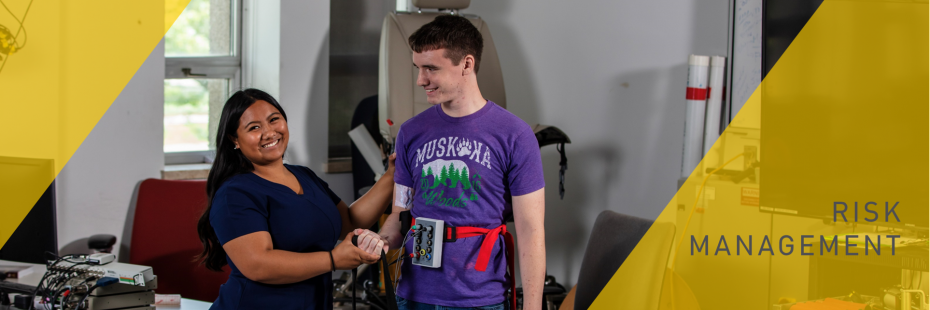When planning for the safety of your students during a study abroad course, begin by reading through the Risk Management Guide on the Office of EL website. Although it is not specific to international courses, there is a great deal there to help you to prepare and facilitate a safe study abroad experience. Some of the considerations mentioned in the guide are expanded here in the context of international travel:
- Liability Waivers will need to be signed by your students. Contact the University of Windsor’s Insurance, Risk Management & FIPPA Officer to provide them with information about the planned trip and its activities. Using the templates they already have, the Insurance, Risk Management & FIPPA Officer will customize a waiver for your course. It is a relatively simple process but does need to be started well in advance of the course.
- Student liability insurance. Our university insurance covers students’ liability during the class or academic portion of the trip. It does not cover students during their “personal time”, for example, free time at the end of the day.
- Appropriate health insurance must be strongly encouraged to be obtained by the students before they depart. Acknowledging that the student has appropriate health insurance can be incorporated into the liability waiver. “Appropriate” is dependant on the course, location, activities, as well as student individual circumstances. The University of Windsor does not have a health insurance provider for student health insurance for study abroad, but we do have experience with different providers.
- COVID-19 protocols. When we begin to travel again, there will likely be COVID related protocols that will need to be included in your waiver. Contact Insurance, Risk Management & FIPPA Officer, who will ensure those are included in your student waiver.
- Plan for worst-case scenarios and ways to reduce the likelihood of these scenarios occurring. For example, plan a procedure if someone becomes injured or breaks a leg. Think about a procedure if there is civil unrest or an earthquake. Your planning will depend on where you are going, and the activities involved.
- Questions. If you have any questions about waivers or liability insurance, contact the Insurance, Risk Management & FIPPA Officer.
Other key success criteria
Planning is the main tool to ensure a safe and successful experience.
- As with any new experience, give yourself time to think through all the permutations and plan for the worst to ensure you have the best possible experience.
- Give yourself and students time to make all the necessary preparations. Students need time to ensure they have an up to date passport, vaccinations, health insurance, cultural preparation and to book flights.
- Be sure to check for up to date travel advice, advisories, and information from https://travel.gc.ca/
- Ask for help from the Office of Experiential Learning when needed.
Communicate your plans:
- Have procedures in place, ensure they are well communicated, and follow them. For example, if the protocol is no one is ever alone - students must always be with a minimum of one other person, make that clear, set up activities to make that easy to comply with, and reinforce it.
- Make sure students know what to do in case of medical and other emergencies.
- Make it very clear to students, verbally and in writing, what is part of the academic course and when students are their own responsibility. Review other points contained in the Risk Management Guide for preparation and communication.
- The course syllabus and/or activity descriptions should very clearly describe the requirements of the activity(ies).
Pre-training or Orientation is a must:
- Michelle Fitzgerald, who coordinates the Exchange program, offers a day long orientation twice a year that your students can attend and would provide them with relevant and useful information. Or, if you have designed your own pre-departure training and orientation, she can be invited to come into your orientation and present portions of her material. Her orientation covers a great deal about safety, risk, security, travel preparation, etc. and would be an excellent addition to the directions you provide.
- Include cultural norms and basics of day-to-day living at the location.
- Ensure students have correct visa and documentation depending on where they are heading and what they are doing.
- If students need a working knowledge of another language, they will need plenty of advance notice.
- Share your knowledge from your experience. The more informed the students are, the better.
Always keep in mind that the role of the faculty member is supervision and students’ safety – to provide a reasonable standard of care and safety. Keep this in mind while planning the course and the activities.

